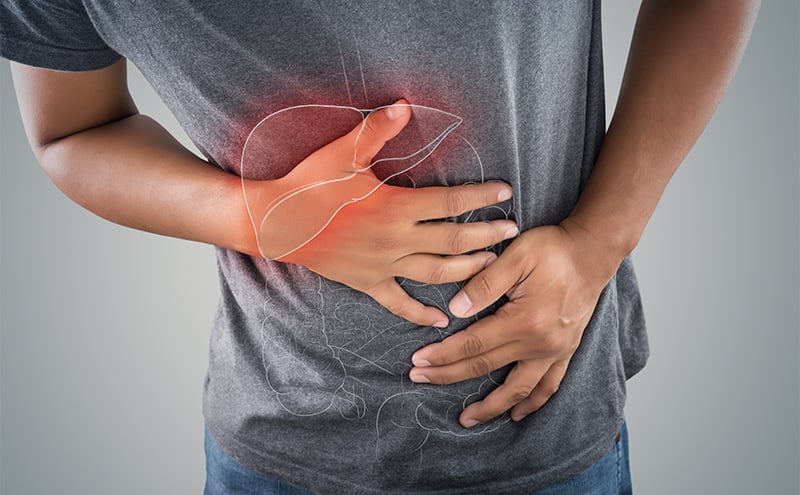Gallstones are solidified deposits of digestive fluids that can originate within the gallbladder, a small pear-shaped organ located on the right side of the abdomen, situated just beneath the liver. This organ holds bile, a digestive fluid, which is subsequently released into the small intestine. The size of gallstones can vary widely, ranging from minuscule particles akin to grains of sand to larger entities comparable in size to golf balls. While some individuals develop singular gallstones, others might experience the formation of multiple stones concurrently. In cases where gallstones generate noticeable symptoms, surgical removal of the gallbladder becomes necessary. However, gallstones that remain asymptomatic typically do not warrant medical intervention.
Ayurvedic principles suggest that gallstones arise from an imbalance in the three doshas—Vata, Pitta, and Kapha. The formation of these stones is attributed to an excessive rise in Pitta, often triggered by the consumption of spicy foods, alcohol, and similar factors. The accumulation of Kapha is intensified by the intake of oily and heavy foods, which then combines with Pitta to create a sticky compound. Subsequently, Vata dries out this mixture, leading to the formation of gallstones. Embracing Ayurveda’s fundamental philosophy of identifying the root cause and aiding the body’s intrinsic rejuvenation process through detoxification, Ayurvedic treatments for gallstones encourage the body to harness its innate healing abilities, facilitating the natural elimination of stones.
In Ayurveda, gallstones are referred to as “Pittashmari.” The treatment of gallstones through Ayurveda employs potent natural herbal remedies and herbs renowned for their liver-cleansing and stone-dissolving properties. These remedies also aim to restore optimal liver function. Complementary to medicinal approaches, maintaining a balanced diet and adopting a healthy lifestyle is crucial. This entails adhering to proper nutritional practices, adhering to regular meal times, and refraining from late-night eating—essential components for recovery. Additionally, it is advisable to avoid heavy and non-vegetarian meals.
Ayurvedic interventions for gallstones are designed to support the body in naturally expelling the stones through bowel movements. The utilization of herbs like Ashwagandha, Shatavari, Swarnapatri, Carom Seed (Ajwain), Gokhru, Tamalaki (Kilanelli), Harad (Haritaki), Katuki, Gokshura, Kalmishora, Sphatika Bhasma (Tuvari), Ananti (Sarsaparilla), Brahmi, Shankh Pushpi, Tulsi Patra, Arjuna Motha, etc., is integral to this process.
These herbal components are rich in nutrients that can enhance digestion, bolster immunity, and elevate metabolic rates. By effectively purging the body of accumulated toxins through comprehensive detoxification, the likelihood of recurring health issues is substantially diminished.

